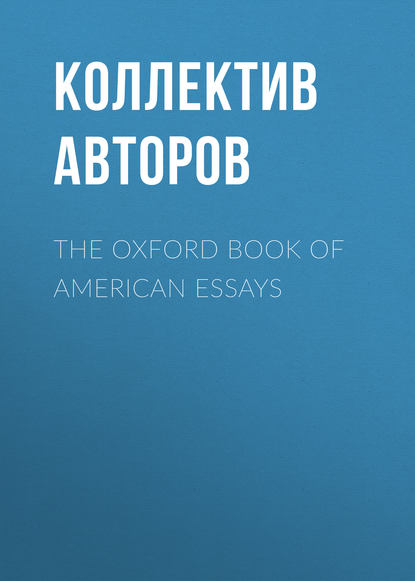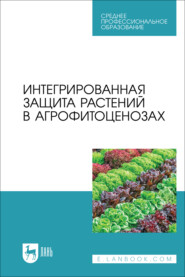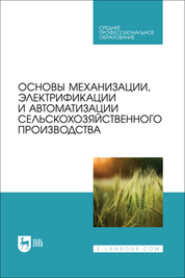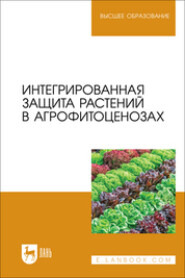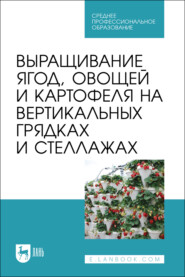По всем вопросам обращайтесь на: info@litportal.ru
(©) 2003-2024.
✖
The Oxford Book of American Essays
Настройки чтения
Размер шрифта
Высота строк
Поля
And open stand for Lydia the door?"
This stanza seemed to have the merit of almost complete literalness, since it omitted only two epithets, and I thought it had no unpardonable defects of rhythm and diction. So I took it as a model, and with little difficulty translated the entire ode – with what success I should not say and others need not inquire.
That rhymes and their position in the stanza are often determined for the translator by his original or else by a prose rendering of that original seems also to be shown by the following version of the closing ode of the first book (Carm. xxxviii) – the graceful "Persicos odi": —
"I hate your Persian trappings, boy,
Your linden-woven crowns annoy,
Cease searching for the spot where blows
The lingering rose.
"To simple myrtle nothing add;
The myrtle misbecomes, my lad,
Nor thee nor me drinking my wine
’Neath close-grown vine."
Here "puer," boy, and "Displicent," displease or annoy, seem to determine, not merely the first rhyme, but the rhyme arrangement (a, a), and it needs but a glance at the close of the first stanza of the original to show that another word rhyming with "boy" would be hard to obtain. It follows that, if we are to have a quatrain, the third and fourth verses should probably be made to rhyme (b, b), and it is not difficult to comply with this requirement, or to cast the second stanza in the mold of the first. It is, alas! too true that no equivalent to "blows" will be found in Horace, that "Sedulus curo" has been unceremoniously thrown aside, that the poet does not specifically mention "wine" as the beverage he liked to drink in his rustic arbor. But a "rose," which Horace does mention, certainly "blows" or blooms very often in English verse; it is not too far-fetched to get "nothing add" and "lad" out of "nihil allabores" and "ministrum"; and "vine" ("vite") has suggested "wine" to many generations of poets. But it is rhyme suggestions and their influence upon the choice of stanzaic form that have occasioned this mild protest against Professor Conington’s precepts of rigid stanzaic conformity. I am convinced, from the above examples and from many more, not only that uniformity of stanza is not to be strictly insisted upon when one is employing rhymes, but also that translators should search more diligently than they appear to do for the rhyme suggestions implicit in so many Horatian stanzas.
Upon other points it is easier to agree with Conington. For most of the odes the iambic movement natural to English is preferable, as Milton may be held to have perceived. He abandoned rhyme in his celebrated version of the "Quis multa gracilis" (i., v.), and hence he had an excellent opportunity to indulge in experiments in so-called logaœdic verse. But he clung to the iambic movement, and the fact is significant, although not to be pressed, since he gave us no other rendering of an entire ode. Here too, however, I must plead for a careful study of each ode by the would-be translator, for there seem to be cases in which it would be almost disastrous to attempt a version in iambics. Such a case is presented by the beautiful "Diffugere nives" (iv., vii.). The iambic renderings of Professor Conington and Sir Theodore Martin seem to stray far from the original movement – as far as the former’s "'No 'scaping death' proclaims the year" does from the diction of Horace or of any other good poet. It is true that English dactyls are dangerous things, especially in translations, where the padding or packing which is natural to the measure when employed in English, is increased by the padding inevitably introduced into a translation from a synthetic into an analytic language. Yet the dactylic movement of the First Archilochian, in which the "Diffugere nives" is written, is hardly without great loss to be represented by any use of English iambics. It presents more difficulty than the introduction of something resembling the movement of dactylic hexameters proper into our blank verse.
When the translator makes up his mind to attempt a close approximation to the Horatian meter, it would seem that he should eschew the use of rhyme as likely to operate against that effect of likeness to the original which he is striving to secure. But, since the use of rhyme in lyric poetry appears, as Conington held, to be essential at present if the English version is to be acceptable as poetry, this close approximation can be desirable in a few special cases only. It will not do to dogmatize on such matters, but it may be safely said that no poet, not even Milton or Whitman, has yet accustomed the English or the American ear to the use of rhymeless verse in lyrical poetry. Here and there a successful rhymeless lyric, such as Collins’s "Ode to Evening" and Tennyson’s "Alcaics" on Milton, shows us that rhymeless stanzas may occasionally be used for lyric purposes with good effect; but thus far those translators of Horace who have made a practice of eschewing rhyme have failed, as a rule, like the first Lord Lytton,[10 - Just as I am revising these comments, the two volumes of the Earl of Lytton’s admirable biography of his grandfather find themselves on my table. As was to be expected, they contain several interesting references to Horace. "He is the model for popular lyrics, and certainly the greatest lyrist extant." Again – "Observe how wonderfully he compresses and studies terseness, as if afraid to bore an impatient, idle audience; secondly, when he selects his picture, how it stands out – Cleopatra’s flight, the speech of Regulus, the vision of Hades in the ode on his escape from the tree, &c."] to give us versions that charm. Yet charm is what the translator of Horace should chiefly endeavor to convey.
I am still more confident that Conington was right when he insisted that the English rendering should be confined "within the same number of lines as the Latin." He was surely right when he taxed Sir Theodore Martin, who so frequently violated this rule, with an exuberance that is totally at variance with the severity of the classics. Such exuberance is almost certain to result if the translator abandon the strict number of the lines into which the Roman poet compressed his thought. It results, too, from the use of stanzas of over four verses each. There is no other rule of translating that will so effectively insure a successful retention of the diction of the original as this of the line for line rendering, whenever such rendering is possible. And that the diction and the thought of the poet should be more closely followed than is usually the case, admits of no manner of doubt. We have already seen that a close scrutiny of the Latin will often suggest an almost literal rendering of the thought and diction. Such a rendering is more desired by the reader who is familiar with Horace than by the reader who is not, but it will be both pleasing and serviceable to the latter, if the quality of literalness be not too slavishly obtained. Metrical considerations and general smoothness ought, as a matter of course, to weigh with every translator, but surely they ought not to outweigh accurate rendering of diction and thought, especially the diction and thought of a poet so felicitous as Horace in his phrasing, and so just and happy in his observation of life.
In this connection I am not sure but that Conington went too far when he recommended the Horatian translator to hold by the diction of our own Augustan period. That the Age of Pope corresponds in many ways with that of Horace is true enough, and the student of the poetry of the eighteenth century who cares at all for the poets he studies is almost sure to be an admirer of the "Roman bard" whom Pope imitated. But the diction of Horace does not strike one as stilted, while that of Pope often does; and for a translator of our own days to employ a diction that seems in any way stilted is fatal not merely to the popularity and hence to the present effectiveness of his work, but also, in all probability, to its intrinsic value. There is a good deal of the commonplace also in the poetry produced in the eighteenth century; but commonplace the translator of Horace can least afford to be. Horace himself may approach dangerously near the commonplace, yet he seems always to miss it by a dexterous and graceful turn. The translator, running after, will miss this turn sufficiently often, as it is; he cannot, therefore, afford to steep himself in a literature that has a tendency to the commonplace. But just as little can he afford to steep himself in the Romantic Poets from Shelley to Swinburne. A translation, whether from the Greek or the Latin, imbibing the luxuriance of imagination and phrasing characteristic of these modern poets, may satisfy a reader still in his intellectual teens, but the reader who makes use of a translation of Horace is likely to have passed out of that period of immaturity. It may be heretical, but I fancy that the translator of Horace who steeps himself in Keats or Tennyson, will be even less likely to give us the ideal rendering than the translator who steeps himself in Pope. Luxuriance and elegance may at times be more displeasing than excessive polish and point.
To mention the eighteenth century is to bring up the thought of Horatian paraphrases. A successful paraphrase is sometimes better as poetry than a good poetical translation, and it not infrequently conveys a juster idea of the spirit of Horace. It is almost needless to praise the work in this kind of Mr. Austin Dobson and of the late Eugene Field. But a paraphrase, however good, can never be entirely satisfying either to the reader that knows Horace or to the reader that desires to know him. Nor can a prose version be thoroughly satisfactory. What is wanted is not merely the drift of the poet’s thought, but, as near as may be, what he actually sang. The paraphrase may sing, and the prose version may give us the thought in nearly equivalent words, which may carry along with them not a little of the poet’s feeling; but neither answers all our requirements as well as a good rendering in verse may do – such a rendering, for example, as that which the late Goldwin Smith gave of the "Cœlo tonantem" (iii., v.) – yet there is surely room for all these forms of approach to a poet who is, paradoxically enough, at one and the same time, the most approachable and the most unapproachable of writers.
But one could write forever upon the topic of poetical translation in general, and of the translation of Horace’s odes in particular. It is a subject about which people will differ to the end of time; a subject the principles of which will never be thoroughly exemplified in practice. Still, it always seems to fascinate those who discuss it, and they have a way of hoping that what they have said about it will not be without value to those who want to read about it. "Hope springs eternal in the human breast," said the poet who also wrote of his great master lines that have not been surpassed in their kind: —
"Horace still charms with graceful negligence,
And without method talks us into sense,
Will like a friend familiarly convey,
The truest notions in the easiest way."
notes
1
"In Latin and French hath many soueraine wittes had great delyte to endite, and have many noble thinges fulfilde, but certes there ben some that speaken their poisye in French, of which speche the Frenchmen have as good a fantasye as we have in hearying of Frenchmen’s Englishe." —Chaucer’s Testament of Love.
2
"Holinshed, in his Chronicle, observes, 'afterwards, also, by deligent travell of Geffry Chaucer and of John Gowre, in the time of Richard the Second, and after them of John Scogan and John Lydgate, monke of Berrie, our said toong was brought to an excellent passe, notwithstanding that it never came unto the type of perfection until the time of Queen Elizabeth, wherein John Jewell, Bishop of Sarum, John Fox, and sundrie learned and excellent writers, have fully accomplished the ornature of the same, to their great praise and immortal commendation.'"
3
"Live ever sweete booke; the simple image of his gentle witt, and the golden-pillar of his noble courage; and ever notify unto the world that thy writer was the secretary of eloquence, the breath of the muses, the honey-bee of the daintyest flowers of witt and arte, the pith of morale and intellectual virtues, the arme of Bellona in the field, the tonge of Suada in the chamber, the sprite of Practise in esse, and the paragon of excellency in print." —Harvey, Pierce’s Supererogation.
4
"Thorow earth and waters deepe,
The pen by skill doth passe:
And featly nyps the worldes abuse,
And shoes us in a glasse,
The vertu and the vice
Of every wight alyve;
The honey comb that bee doth make
Is not so sweet in hyve,
As are the golden leves
That drop from poet’s head!
Which doth surmount our common talke
As farre as dross doth lead."
– Churchyard.
5
From the Atlantic Monthly, January, 1869.
6
One of Mr. Lincoln’s neatest strokes of humor was his treatment of this gentleman when a laudable curiosity induced him to be presented to the President of the Broken Bubble. Mr. Lincoln persisted in calling him Mr. Partington. Surely the refinement of good-breeding could go no further. Giving the young man his real name (already notorious in the newspapers) would have made his visit an insult. Had Henri IV. done this, it would have been famous.
7
June 30, 1895.
8
1876.
9
This essay appeared originally in the Atlantic Monthly for May, 1883. During the thirty years which have elapsed since it was written the manifestations of the colonial spirit then apparent in the United States have not only altered in character but, I am glad to say, have weakened, diminished, and become less noticeable. Since 1883, also, there has been much achieved by Americans in Art and Literature, in painting, in sculpture, in music, and particularly in architecture. Success in all these fields has, with few exceptions, been won by men working in the spirit which is not colonial, but which it was the purpose of this essay to inculcate as the true one to which alone we could look for fine and enduring achievement. I have called attention to the date at which the essay was written in order that those who read it may remember that it applies in certain points to the conditions of thirty years ago and not to those of the present day.
10
Just as I am revising these comments, the two volumes of the Earl of Lytton’s admirable biography of his grandfather find themselves on my table. As was to be expected, they contain several interesting references to Horace. "He is the model for popular lyrics, and certainly the greatest lyrist extant." Again – "Observe how wonderfully he compresses and studies terseness, as if afraid to bore an impatient, idle audience; secondly, when he selects his picture, how it stands out – Cleopatra’s flight, the speech of Regulus, the vision of Hades in the ode on his escape from the tree, &c."
This stanza seemed to have the merit of almost complete literalness, since it omitted only two epithets, and I thought it had no unpardonable defects of rhythm and diction. So I took it as a model, and with little difficulty translated the entire ode – with what success I should not say and others need not inquire.
That rhymes and their position in the stanza are often determined for the translator by his original or else by a prose rendering of that original seems also to be shown by the following version of the closing ode of the first book (Carm. xxxviii) – the graceful "Persicos odi": —
"I hate your Persian trappings, boy,
Your linden-woven crowns annoy,
Cease searching for the spot where blows
The lingering rose.
"To simple myrtle nothing add;
The myrtle misbecomes, my lad,
Nor thee nor me drinking my wine
’Neath close-grown vine."
Here "puer," boy, and "Displicent," displease or annoy, seem to determine, not merely the first rhyme, but the rhyme arrangement (a, a), and it needs but a glance at the close of the first stanza of the original to show that another word rhyming with "boy" would be hard to obtain. It follows that, if we are to have a quatrain, the third and fourth verses should probably be made to rhyme (b, b), and it is not difficult to comply with this requirement, or to cast the second stanza in the mold of the first. It is, alas! too true that no equivalent to "blows" will be found in Horace, that "Sedulus curo" has been unceremoniously thrown aside, that the poet does not specifically mention "wine" as the beverage he liked to drink in his rustic arbor. But a "rose," which Horace does mention, certainly "blows" or blooms very often in English verse; it is not too far-fetched to get "nothing add" and "lad" out of "nihil allabores" and "ministrum"; and "vine" ("vite") has suggested "wine" to many generations of poets. But it is rhyme suggestions and their influence upon the choice of stanzaic form that have occasioned this mild protest against Professor Conington’s precepts of rigid stanzaic conformity. I am convinced, from the above examples and from many more, not only that uniformity of stanza is not to be strictly insisted upon when one is employing rhymes, but also that translators should search more diligently than they appear to do for the rhyme suggestions implicit in so many Horatian stanzas.
Upon other points it is easier to agree with Conington. For most of the odes the iambic movement natural to English is preferable, as Milton may be held to have perceived. He abandoned rhyme in his celebrated version of the "Quis multa gracilis" (i., v.), and hence he had an excellent opportunity to indulge in experiments in so-called logaœdic verse. But he clung to the iambic movement, and the fact is significant, although not to be pressed, since he gave us no other rendering of an entire ode. Here too, however, I must plead for a careful study of each ode by the would-be translator, for there seem to be cases in which it would be almost disastrous to attempt a version in iambics. Such a case is presented by the beautiful "Diffugere nives" (iv., vii.). The iambic renderings of Professor Conington and Sir Theodore Martin seem to stray far from the original movement – as far as the former’s "'No 'scaping death' proclaims the year" does from the diction of Horace or of any other good poet. It is true that English dactyls are dangerous things, especially in translations, where the padding or packing which is natural to the measure when employed in English, is increased by the padding inevitably introduced into a translation from a synthetic into an analytic language. Yet the dactylic movement of the First Archilochian, in which the "Diffugere nives" is written, is hardly without great loss to be represented by any use of English iambics. It presents more difficulty than the introduction of something resembling the movement of dactylic hexameters proper into our blank verse.
When the translator makes up his mind to attempt a close approximation to the Horatian meter, it would seem that he should eschew the use of rhyme as likely to operate against that effect of likeness to the original which he is striving to secure. But, since the use of rhyme in lyric poetry appears, as Conington held, to be essential at present if the English version is to be acceptable as poetry, this close approximation can be desirable in a few special cases only. It will not do to dogmatize on such matters, but it may be safely said that no poet, not even Milton or Whitman, has yet accustomed the English or the American ear to the use of rhymeless verse in lyrical poetry. Here and there a successful rhymeless lyric, such as Collins’s "Ode to Evening" and Tennyson’s "Alcaics" on Milton, shows us that rhymeless stanzas may occasionally be used for lyric purposes with good effect; but thus far those translators of Horace who have made a practice of eschewing rhyme have failed, as a rule, like the first Lord Lytton,[10 - Just as I am revising these comments, the two volumes of the Earl of Lytton’s admirable biography of his grandfather find themselves on my table. As was to be expected, they contain several interesting references to Horace. "He is the model for popular lyrics, and certainly the greatest lyrist extant." Again – "Observe how wonderfully he compresses and studies terseness, as if afraid to bore an impatient, idle audience; secondly, when he selects his picture, how it stands out – Cleopatra’s flight, the speech of Regulus, the vision of Hades in the ode on his escape from the tree, &c."] to give us versions that charm. Yet charm is what the translator of Horace should chiefly endeavor to convey.
I am still more confident that Conington was right when he insisted that the English rendering should be confined "within the same number of lines as the Latin." He was surely right when he taxed Sir Theodore Martin, who so frequently violated this rule, with an exuberance that is totally at variance with the severity of the classics. Such exuberance is almost certain to result if the translator abandon the strict number of the lines into which the Roman poet compressed his thought. It results, too, from the use of stanzas of over four verses each. There is no other rule of translating that will so effectively insure a successful retention of the diction of the original as this of the line for line rendering, whenever such rendering is possible. And that the diction and the thought of the poet should be more closely followed than is usually the case, admits of no manner of doubt. We have already seen that a close scrutiny of the Latin will often suggest an almost literal rendering of the thought and diction. Such a rendering is more desired by the reader who is familiar with Horace than by the reader who is not, but it will be both pleasing and serviceable to the latter, if the quality of literalness be not too slavishly obtained. Metrical considerations and general smoothness ought, as a matter of course, to weigh with every translator, but surely they ought not to outweigh accurate rendering of diction and thought, especially the diction and thought of a poet so felicitous as Horace in his phrasing, and so just and happy in his observation of life.
In this connection I am not sure but that Conington went too far when he recommended the Horatian translator to hold by the diction of our own Augustan period. That the Age of Pope corresponds in many ways with that of Horace is true enough, and the student of the poetry of the eighteenth century who cares at all for the poets he studies is almost sure to be an admirer of the "Roman bard" whom Pope imitated. But the diction of Horace does not strike one as stilted, while that of Pope often does; and for a translator of our own days to employ a diction that seems in any way stilted is fatal not merely to the popularity and hence to the present effectiveness of his work, but also, in all probability, to its intrinsic value. There is a good deal of the commonplace also in the poetry produced in the eighteenth century; but commonplace the translator of Horace can least afford to be. Horace himself may approach dangerously near the commonplace, yet he seems always to miss it by a dexterous and graceful turn. The translator, running after, will miss this turn sufficiently often, as it is; he cannot, therefore, afford to steep himself in a literature that has a tendency to the commonplace. But just as little can he afford to steep himself in the Romantic Poets from Shelley to Swinburne. A translation, whether from the Greek or the Latin, imbibing the luxuriance of imagination and phrasing characteristic of these modern poets, may satisfy a reader still in his intellectual teens, but the reader who makes use of a translation of Horace is likely to have passed out of that period of immaturity. It may be heretical, but I fancy that the translator of Horace who steeps himself in Keats or Tennyson, will be even less likely to give us the ideal rendering than the translator who steeps himself in Pope. Luxuriance and elegance may at times be more displeasing than excessive polish and point.
To mention the eighteenth century is to bring up the thought of Horatian paraphrases. A successful paraphrase is sometimes better as poetry than a good poetical translation, and it not infrequently conveys a juster idea of the spirit of Horace. It is almost needless to praise the work in this kind of Mr. Austin Dobson and of the late Eugene Field. But a paraphrase, however good, can never be entirely satisfying either to the reader that knows Horace or to the reader that desires to know him. Nor can a prose version be thoroughly satisfactory. What is wanted is not merely the drift of the poet’s thought, but, as near as may be, what he actually sang. The paraphrase may sing, and the prose version may give us the thought in nearly equivalent words, which may carry along with them not a little of the poet’s feeling; but neither answers all our requirements as well as a good rendering in verse may do – such a rendering, for example, as that which the late Goldwin Smith gave of the "Cœlo tonantem" (iii., v.) – yet there is surely room for all these forms of approach to a poet who is, paradoxically enough, at one and the same time, the most approachable and the most unapproachable of writers.
But one could write forever upon the topic of poetical translation in general, and of the translation of Horace’s odes in particular. It is a subject about which people will differ to the end of time; a subject the principles of which will never be thoroughly exemplified in practice. Still, it always seems to fascinate those who discuss it, and they have a way of hoping that what they have said about it will not be without value to those who want to read about it. "Hope springs eternal in the human breast," said the poet who also wrote of his great master lines that have not been surpassed in their kind: —
"Horace still charms with graceful negligence,
And without method talks us into sense,
Will like a friend familiarly convey,
The truest notions in the easiest way."
notes
1
"In Latin and French hath many soueraine wittes had great delyte to endite, and have many noble thinges fulfilde, but certes there ben some that speaken their poisye in French, of which speche the Frenchmen have as good a fantasye as we have in hearying of Frenchmen’s Englishe." —Chaucer’s Testament of Love.
2
"Holinshed, in his Chronicle, observes, 'afterwards, also, by deligent travell of Geffry Chaucer and of John Gowre, in the time of Richard the Second, and after them of John Scogan and John Lydgate, monke of Berrie, our said toong was brought to an excellent passe, notwithstanding that it never came unto the type of perfection until the time of Queen Elizabeth, wherein John Jewell, Bishop of Sarum, John Fox, and sundrie learned and excellent writers, have fully accomplished the ornature of the same, to their great praise and immortal commendation.'"
3
"Live ever sweete booke; the simple image of his gentle witt, and the golden-pillar of his noble courage; and ever notify unto the world that thy writer was the secretary of eloquence, the breath of the muses, the honey-bee of the daintyest flowers of witt and arte, the pith of morale and intellectual virtues, the arme of Bellona in the field, the tonge of Suada in the chamber, the sprite of Practise in esse, and the paragon of excellency in print." —Harvey, Pierce’s Supererogation.
4
"Thorow earth and waters deepe,
The pen by skill doth passe:
And featly nyps the worldes abuse,
And shoes us in a glasse,
The vertu and the vice
Of every wight alyve;
The honey comb that bee doth make
Is not so sweet in hyve,
As are the golden leves
That drop from poet’s head!
Which doth surmount our common talke
As farre as dross doth lead."
– Churchyard.
5
From the Atlantic Monthly, January, 1869.
6
One of Mr. Lincoln’s neatest strokes of humor was his treatment of this gentleman when a laudable curiosity induced him to be presented to the President of the Broken Bubble. Mr. Lincoln persisted in calling him Mr. Partington. Surely the refinement of good-breeding could go no further. Giving the young man his real name (already notorious in the newspapers) would have made his visit an insult. Had Henri IV. done this, it would have been famous.
7
June 30, 1895.
8
1876.
9
This essay appeared originally in the Atlantic Monthly for May, 1883. During the thirty years which have elapsed since it was written the manifestations of the colonial spirit then apparent in the United States have not only altered in character but, I am glad to say, have weakened, diminished, and become less noticeable. Since 1883, also, there has been much achieved by Americans in Art and Literature, in painting, in sculpture, in music, and particularly in architecture. Success in all these fields has, with few exceptions, been won by men working in the spirit which is not colonial, but which it was the purpose of this essay to inculcate as the true one to which alone we could look for fine and enduring achievement. I have called attention to the date at which the essay was written in order that those who read it may remember that it applies in certain points to the conditions of thirty years ago and not to those of the present day.
10
Just as I am revising these comments, the two volumes of the Earl of Lytton’s admirable biography of his grandfather find themselves on my table. As was to be expected, they contain several interesting references to Horace. "He is the model for popular lyrics, and certainly the greatest lyrist extant." Again – "Observe how wonderfully he compresses and studies terseness, as if afraid to bore an impatient, idle audience; secondly, when he selects his picture, how it stands out – Cleopatra’s flight, the speech of Regulus, the vision of Hades in the ode on his escape from the tree, &c."





